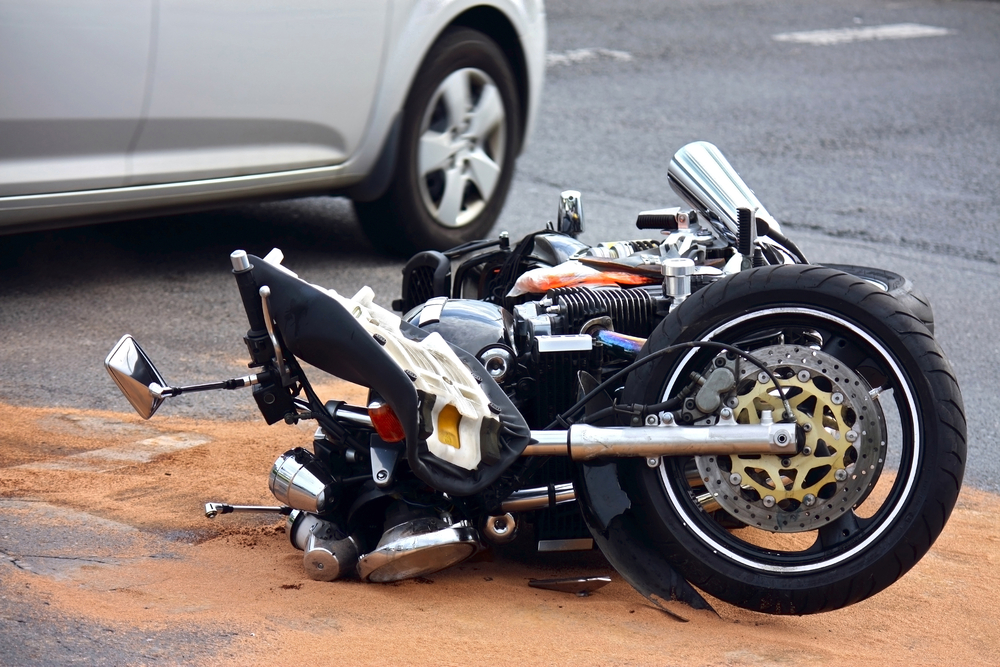
Support When You Need It Most
A motorcycle accident can lead to catastrophic injuries and life-changing consequences. If you've been injured while riding in Texas, you may be facing serious medical bills, lost wages, and uncertainty about your legal rights. AskLitigation is here to guide you through the process and help you pursue fair compensation.
Motorcycle accidents are among the most severe types of traffic accidents in Texas. Our attorneys also handle related matters such as car accidents and cases involving defective vehicle parts.
Understanding Motorcycle Accidents in Texas
Texas leads the nation in motorcycle fatalities, with over 500 deaths annually. Motorcycle riders face unique dangers on Texas roads:
- Limited visibility to other drivers
- No protective enclosure
- Greater vulnerability to road hazards
- Higher risk of severe injuries
- Bias against motorcyclists in insurance claims
Despite following all safety rules, motorcyclists often suffer due to negligent drivers who fail to share the road safely.
Texas Motorcycle Laws and Your Rights
Texas law provides specific protections and requirements for motorcyclists:
- Helmet Law: Riders 21+ can ride without a helmet if they have insurance or complete a safety course
- Lane Splitting: Not legal in Texas (riding between lanes of traffic)
- Licensing: Class M license required for motorcycles
- Insurance: Same minimum coverage as cars (30/60/25)
- Modified Comparative Fault: Recovery possible if less than 51% at fault
Understanding these laws helps establish liability and protect your rights after an accident.
Common Causes of Motorcycle Accidents in Texas
Most Texas motorcycle accidents result from:
- Left-turn accidents (cars turning in front of motorcycles)
- Drivers failing to check blind spots
- Distracted driving (phones, eating, GPS)
- Following too closely
- Unsafe lane changes
- Driving under the influence
- Road hazards (potholes, debris, oil slicks)
- Speeding and reckless driving
In most cases, the other driver's negligence causes the crash, not the motorcyclist.
Steps to Take After a Motorcycle Accident
If you're in a motorcycle accident in Texas:
- Get immediate medical attention - Even with protective gear, injuries may be severe
- Call 911 - Get police and EMS on scene
- Document everything - Photos of the scene, vehicles, injuries, and road conditions
- Collect witness information - Critical for proving the other driver's fault
- Don't remove your helmet - If injured, wait for medical professionals
- Report to insurance - But avoid giving recorded statements
- Keep all gear - Damaged equipment is evidence
- Contact an attorney - Motorcycle cases face unique biases
What Compensation Can You Recover?
Texas motorcycle accident victims may recover:
- Emergency medical treatment and hospitalization
- Surgery and ongoing medical care
- Lost wages and reduced earning capacity
- Pain and suffering
- Physical impairment and disfigurement
- Property damage (motorcycle, gear, personal items)
- Mental anguish and emotional trauma
- In cases of gross negligence, punitive damages
Given the severity of motorcycle injuries, compensation needs are often substantial.
Why Motorcycle Cases Are Different
Motorcycle accident claims face unique challenges:
- Bias Against Riders: Insurance companies and juries often unfairly blame motorcyclists
- Severe Injuries: Road rash, broken bones, spinal injuries, and traumatic brain injuries are common
- Complex Liability: Multiple parties may be responsible
- Higher Medical Costs: Extended treatment and rehabilitation often required
- Permanent Impact: Many riders face lifelong disabilities
An experienced attorney can counter these biases and fight for fair compensation.
Time Limits for Filing a Motorcycle Accident Claim
In Texas, you have:
- Two years from the accident date to file a personal injury lawsuit
- Two years for property damage claims
- Six months or less for claims against government entities
Don't wait - evidence disappears and witnesses forget crucial details.
Protecting Your Rights as a Texas Motorcyclist
To strengthen your claim:
- Always carry adequate insurance (consider UIM coverage)
- Wear protective gear even if not required
- Follow traffic laws meticulously
- Document your riding experience and safety training
- Join motorcycle rights organizations
- Keep detailed records of all expenses
These steps help counter unfair biases against motorcyclists.
Frequently Asked Questions About Texas Motorcycle Accidents
Does not wearing a helmet affect my Texas motorcycle accident claim?
If you're 21+ and legally riding without a helmet, it shouldn't bar recovery. However, if you suffered head injuries, the defense may argue helmet use could have prevented them, potentially reducing compensation.
What if the driver claims they didn't see me?
Failure to see a motorcyclist is not a defense - it's often evidence of negligence. Drivers have a duty to look for and yield to all traffic, including motorcycles.
Can I recover if I was lane splitting when the accident occurred?
Lane splitting is illegal in Texas and could affect fault determination. However, if the other driver was also negligent, you may still recover under comparative fault rules if less than 51% responsible.
What if the other driver was uninsured?
About 20% of Texas drivers are uninsured. You may recover through your uninsured/underinsured motorist coverage, or by pursuing the driver's personal assets.
Browse Articles for "Motorcycle Accidents" in Texas:
Start Your FREE Consultation
Complete the form for a Free Consultation. No upfront fees, swift action, and we’re only paid when we succeed for you.
Ask Us If You Qualify
We’re here to help you take on your fight—whether it’s a car accident, a dangerous drug, or a workplace injury gone wrong. One call starts it all, and we’re with you every step, no upfront cost required.
- Free Case Review
- No Fees Until Victory
- Millions Recovered
- Personal Strategy
- California Coverage
- Relentless Case Pursuit
